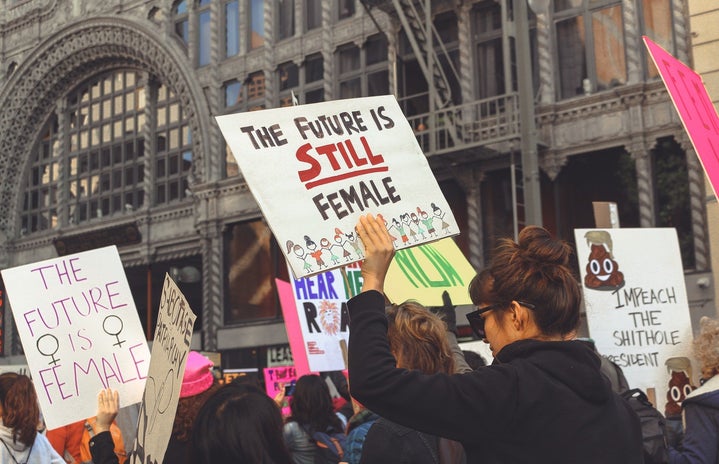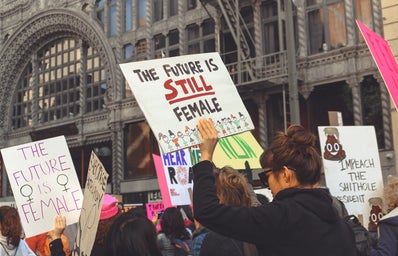Edited By: Arnav Diwan
Often the society, culture and religion have supported the idea of one sex being better than another. This lead to the belief that women are the weaker sex and ever since have been subjected to discrimination. The patriarchal system has dominated and oppressed women for a long time. Added to that, male chauvinistic views have acted as a barrier to the individualistic progress and success that women can achieve. Oppression is the act of unjust and ill-treatment imposed by authority. Despite years of such disparity, it still remains unclear as to who gave society the authority to suppress women?
The determination and resolution of many women in face of such adversities have paved an easier path for the upcoming generations. Many women have strived hard and withstood the test of time to enable basic rights to women such as that of education and to earn. However, gender discrimination still persists in many parts of the world and gender equality is still a privilege.
“A Vindication of the Rights of Women” is considered the earliest and the most important treaties advocating equality for women. This fierce book, written by Marry Wollstonecraft, put forth some revolutionary views that shattered the patriarchal and male dominating ideologies that the society was built on. In her book, she places a bold argument supporting the notion that men and women are equal. Wollstonecraft believes that women have been denied the growth of their intellectual capabilities and for this reason, they may seem inferior to men. She argues that from a young age, women have been encouraged to take care of their family and adorn themselves to appease society.
Wollstonecraft founded a girls’ school which developed a prestigious reputation and served as a starting point for Wollstonecraft’s radical ideas about the necessary equality of female and male education.
Mary Wollstonecraft spoke against this disparity in 1792, and it is unfortunate that many women to this day are denied the opportunity to study because of the deep-rooted cultural ideologies. It was in 2012 that Malala Yousafzai was shot down because she raised her voice against such inequalities and stood for female education.
When talking of gender equality it is imperative to mention the contributions of Justice Ruth Bader Ginsberg. She was a strong advocate for gender equality and believed that the Law was “gender blind”. Ginsburg became the US court’s second female justice. As a judge, Ginsburg aligned with the US Supreme Court’s moderate-liberal bloc. She spoke strongly in favour of gender equality, the rights of workers and the separation of church and state. The undeterred determination of women like Ginsburg have inspired and motivated others to follow their dreams relentlessly.
Dr Manabi Bandopadhyay is India’s first openly transgender college principal. Belonging to a marginalized section of the society, she was oppressed not only by the masses but also by her own family. She eventually went on to complete her PhD and become a lecturer in college. She never let her education be deterred by the ridicule she faced. She knew that knowledge was the greatest weapon to break the stereotypes.
The battles of women like them have helped empower women all around the world. Such inspirational personalities have motivated women who choose to challenge society in their own different ways and choose to live their life on their own terms. Every year on 8th march, international women’s day is celebrated worldwide. It is observed to celebrate the achievements of women and empower them all around the world. While there are many who have found their voices and their individuality, there are many who are struggling to break the shackles. The empowerment of women is necessary and is an ongoing endeavour…



